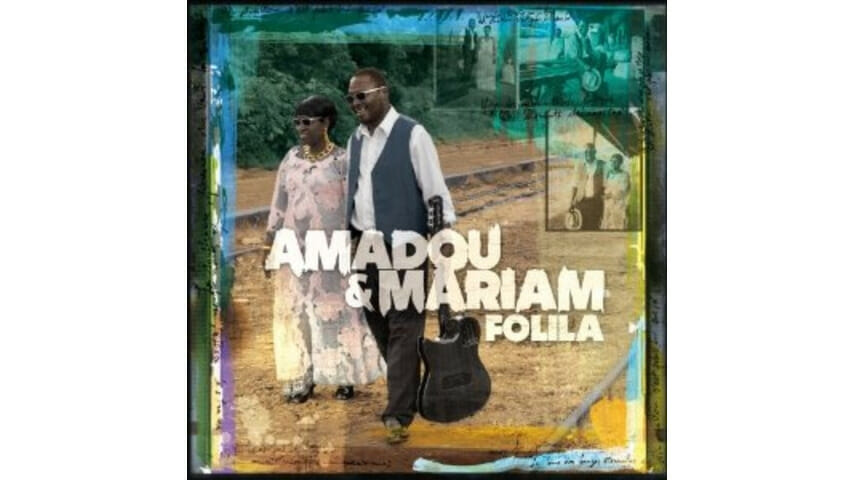Amadou & Mariam: Folila

For world music fans, a new album from Mali’s Amadou & Mariam is always something to get excited about. For the last decade or so, the blind husband and wife duo have been releasing music that embraces the sounds of their desert homeland— made familiar by Tinariwen and Ali Farka Touré—while at the same time incorporating aspects of many other genres including soul, techno, dub and hard rock. Their newest LP, Folila, is Amadou & Mariam’s most accessible album to date and features guests such as members of TV On The Radio, Theophilus London and Yeah Yeah Yeahs guitarist Nick Zinner. Hopefully, the attention that such guests will attract will have the effect of introducing a much larger audience to the duo’s unfailingly engaging and appealing music.
-

-

-

-

-

-

-

-

-

-

-

-

-

-

-

-

-

-

-

-

-

-

-

-

-

-

-

-

-

-

-

-

-

-

-

-

-

-

-

-








































